
WE'RE ALL PRISONERS UNTIL WE DECIDE TO BE FREE
A message from the founder of Excell Network
Prisoner. What’s the first thing you think of when you hear that word? I bet it is someone who has committed a crime. Well, you wouldn’t be wrong in your assumption; yet this isn’t the only way someone might become a prisoner. The truth is, we are all prisoners of something even though we may not actually be in a prison. In the same way, an incarcerated person might be a prisoner of something aside from the physical barriers that detain them.
Imprisonment does not just affect those who are vulnerable or those with traumas; it can affect us all. This can take many shapes. Is it possible to become a prisoner of food, TV, a cellphone, even social media? Yes! But what is the problem of being a prisoner of something if it does not hurt anybody? The problem is that it hurts YOU! Anything that holds you back from what’s really important can become a prison.
In fact, it’s quite easy! How often do you see everyone with their phones in public areas or in restaurants, ignoring their partner? It doesn’t matter who they are, or who they are with, their cellphone is the center of attention. Maybe it’s not technology, maybe it is a sport. I know a few people who would be torn between their child’s birth and watching the championship game of their favorite sport. That may sound extreme, but it’s the truth. If we take a moment to inspect our lives, we will find we are all guilty of being prisoners of something.
But we have a choice; we can decide to be free with the help of God. The Excell Network students featured in this issue have decided to be free by attending school. You can help them to attain freedom, visit ExcellNetwork.org to choose your options.
JULIO ESCOBAR


JULIO ESCOBAR
Founder Excell Network
TODOS SOMOS PRISIONEROS HASTA
QUE
DECIDIMOS SER LIBRES
Un mensaje del fundador de Excell Network
Prisionero. ¿Qué es lo primero en lo que piensas cuando escuchas esa palabra? Apuesto a que es alguien que ha cometido un delito. Bueno, no estarías equivocado en tu suposición; sin embargo, esta no es la única forma en que alguien puede convertirse en prisionero. La verdad es que todos somos prisioneros de algo, aunque en realidad no estemos en una prisión. De la misma manera, una persona encarcelada puede ser prisionera de algo más allá de las barreras físicas que la detienen.
El encarcelamiento no solo afecta a las personas vulnerables o con traumas; puede afectarnos a todos. Esto puede tomar muchas formas. ¿Es posible convertirse en prisionero de la comida, la televisión, un teléfono celular, incluso las redes sociales? ¡Sí! Pero, ¿cuál es el problema de ser prisionero de algo si no lastima a nadie? ¡El problema es que te daña a TI! Todo lo que le impida acceder a lo que es realmente importante puede convertirse en una prisión.
De hecho, ¡es bastante fácil! ¿Con qué frecuencia ves a todos con sus teléfonos en áreas públicas o en restaurantes, ignorando a su pareja? No importa quiénes son o con quién están, su teléfono celular es el centro de atención. Quizás no sea la tecnología, quizás sea un deporte. Conozco a algunas personas que estarían divididas entre el nacimiento de su hijo y ver el campeonato de su deporte favorito. Eso puede parecer extremo, pero es la verdad. Si nos tomamos un momento para inspeccionar nuestras vidas, descubriremos que todos somos culpables de ser prisioneros de algo.
Pero tenemos una opción; podemos decidir ser libres con la ayuda de Dios. Los estudiantes de Excell Network que aparecen en esta publicación han decidido ser libres asistiendo a la escuela. Puedes ayudarlos a alcanzar la libertad, visite ExcellNetwork.org para ver tus opciones.
JULIO ESCOBAR
Issue 03 Excell Network Magazine | Summer 2021 2 | www.excellnetwork.org


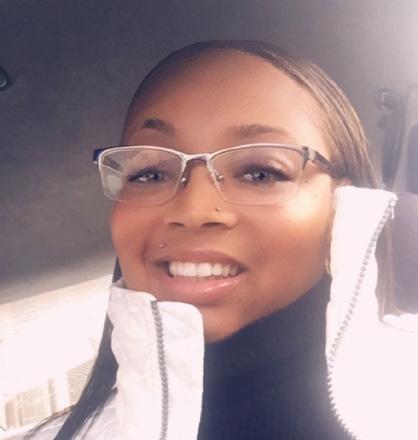


CONTENTS WE ARE ALL PRISONERS UNTIL WE DECIDE TO BE FREE A message from the founder of Excell Network LAKISHA RICHMOND
was very angry, very upset” OMAR BREEDLOVE
don’t belong in here." SYYEN HONG
was running for my life.” Excell Network Magazine Summer 2021 Issue 2 4 10 13 7 8 EXCELL NETWORK MONTHLY BREAKFAST EXCELL NETWORK 2021 SCHOLARSHIP RECIPIENTS excellnetwork.org/ www.excellnetwork.org | 3 Excell Network Magazine | Summer 2021 Issue 03 Excell Network magazine@excellnetwork.org Tel.: (415) 762.2300 P.O. Box: 320514 San Francisco, CA 94132 Excell Network is a 501(c)(3) charitable organization, EIN 90-0750851. All contributions are tax deductible. Contributors in this issue: • Lakisha Richmond • Omar Breedlove • Syyen Hong • Dana Perrigan • Eduardo Banos • Carolina Parrales • Lorena Rojas • Melissa Vlach • Jan Potts • Valerie Schmalz • Julio Escobar
“I
“I
“I
LAKISHA RICHMOND
“I was very angry, very upset”
Up until the moment her longtime boyfriend was shot and killed in San Francisco’s Bayview District, Lakisha Richmond’s life was not remarkably different than that of many others.
She grew up in the Potrero Hill neighborhood and Mission District with her parents, a brave and curious kid who was very close to her three sisters. She fell in love with a boy in middle school. She attended Mission and Downtown high schools and, later, City College of San Francisco. She planned to become a dental hygienist, get married and raise a family of her own.
And then, about two years ago, it all went sideways: The boy she fell in love with in middle school -- whom she had been with for 10 years -- was slain. “I was very angry, very upset,” says Richmond. “That’s where everything went downhill.”
Four days later, Richmond was arrested in the Bayview with a group of people upset about the killing -- which remains unsolved -- and intent on some form of retaliation.
“I went to jail with about eight people,” says Richmond, “but I got the heavy charge. I was on video.”
The initial charge, attempted murder, was later reduced to assault with a deadly weapon. Following her conviction, she was sent to county jail.
“I was nervous,” she says. “I felt like I let a lot of people down. But I knew I could get through it. I didn’t know what was going to happen, but then my mentor stepped up. My mom came, my dad was there. My sisters. I had a lot of support.”
Richmond spent three months in jail, followed by a year of home detention.
 By Dana Perrigan Writer | Journalist | Book Author
By Dana Perrigan Writer | Journalist | Book Author
Hasta el momento en que su novio de toda la vida fue asesinado a tiros en el distrito Bayview de San Francisco, la vida de Lakisha Richmond no era muy diferente a la de muchos otros.
Creció en el vecindario de Potrero Hill y Mission District con sus padres, una niña valiente y curiosa que era muy cercana a sus tres hermanas. Se enamoró de un chico en la escuela secundaria. Asistió a las escuelas secundarias Mission y Downtown y, más tarde, al City College of San Francisco. Ella planeaba convertirse en higienista dental, casarse y formar su propia familia
Y luego, hace unos dos años, todo salió mal: el chico del que se enamoró en la escuela secundaria, con quien había estado durante 10 años, fue asesinado.
“Estaba muy enojada y muy molesta”, dice Richmond. "Ahí es donde todo fue cuesta abajo".
Cuatro días después, Richmond fue arrestada en Bayview con un grupo de personas acusadas por un asesinato, que sigue sin resolverse, y con la intención de tomar alguna forma de represalia.
Issue 03 Excell Network Magazine | Summer 2021 4 | www.excellnetwork.org
"Estaba muy enfadada, muy molesta"
“It changed my life and it saved me, too,” says Richmond. “I was able to cope with the loss while incarcerated. The time in jail allowed me to come to terms with it.”
But her troubles with the law weren’t over yet. She was later arrested for possession of a firearm while on probation, convicted and sent back to county jail for a year.
Once again, says Richmond, something positive came out of the time she spent in jail. She was able to sever the ties of some relationships, and she made a vow that she would never put herself through what she had gone through again.
“I worked in jail,” she says. “I kept my mind busy. I read books.”
Released last July, Richmond lived for a while in a halfway house for women in the Mission District, and then returned home to help take care of her ailing mother.
Her first priority was to find work.
“I tried to get out and hit the ground running,” Richmond says, “but everywhere I went I was denied because of my record. It took me a while to find a job.”
After months of looking, she was hired as a site supervisor with the IPO/CJP program at Arriba Juntos in the Mission. The program is dedicated to helping people from 18 to 35 years of age living in the Sunnydale, Fillmore and Bayview districts find employment.
“I love it,” she says. “I go out to our host site and make sure they have what they need and just remove any barriers they may have to be successful. It feels good to give back.”
Richmond also plans to continue pursuing her educational goals. Currently, she is taking a class at San Francisco State University while working full-time at Arriba Juntos. Eventually, she would like to earn a Bachelor’s Degree.
“Fui a la cárcel con unas ocho personas”, dice Richmond, “pero me acusaron mucho. Estaba en video ".
El cargo inicial, intento de asesinato, se redujo luego a asalto con arma mortal. Tras su condena, fue enviada a la cárcel del condado.
“Estaba nerviosa”, dice. “Sentí que decepcioné a mucha gente. Pero sabía que podría superarlo. No sabía lo que iba a pasar, pero luego mi mentor intervino. Mi mamá vino, mi papá estaba allí. Mis hermanas. Tuve mucho apoyo ”.
Richmond pasó tres meses en la cárcel, seguidos de un año de detención domiciliaria.
“Cambió mi vida y también me salvó”, dice Richmond. “Pude hacer frente a la pérdida mientras estaba encarcelada. El tiempo en la cárcel me permitió aceptarlo ".
Pero sus problemas con la ley aún no habían terminado. Más tarde fue arrestada por posesión de un arma de fuego mientras estaba en libertad condicional, declarada culpable y enviada de regreso a la cárcel del condado por un año.
Una vez más, dice Richmond, algo positivo salió del tiempo que pasó en la cárcel. Pudo romper los lazos de algunas relaciones y juró que nunca volvería a pasar por lo que había pasado.
"Trabajé en la cárcel", dice. “Mantuve mi mente ocupada. Leí libros."
Puesta en libertad en julio del año pasado, Richmond vivió durante un tiempo en un centro de rehabilitación para mujeres en el Distrito de la Misión, y luego regresó a casa para ayudar a cuidar a su madre enferma.
Su primera prioridad fue encontrar trabajo.
“Traté de salir y empezar a trabajar”, dice Richmond, “pero en todos los lugares a los que fui me negaron debido a mi historial. Me tomó un tiempo encontrar trabajo ".
Después de meses de buscar, fue contratada como supervisora de sitio con el programa IPO / CJP en Arriba Juntos en la Misión. El programa está dedicado a ayudar a las personas de 18 a 35 años de edad que viven en los distritos de Sunnydale, Fillmore y Bayview a encontrar empleo.
www.excellnetwork.org | 5 Excell Network Magazine | Summer 2021 Issue 03
“I’m not sure exactly in what right now,” says Richmond. “I’m still working on that.”
Another goal Richmond is working on is becoming a first-time home buyer. She realizes that San Francisco’s high housing costs are a formidable barrier for anyone, but she also knows that the road to reaching any goal begins with believing in yourself.
“You believe in yourself and you go after it and you will be blessed,” she says, “and you will pick up others with you.”
For those who find it difficult, for whatever reason, to believe in themselves, Richmond has the following advice:
“I say, just keep pushing. Just try. Keep pushing yourself, no matter what, no matter how tough it gets, no matter how hard -- just always pick yourself up and keep going.”
Following that advice has already born fruit for Richmond.
“I like what I do,” she says, “and I like where I’m at right now.”
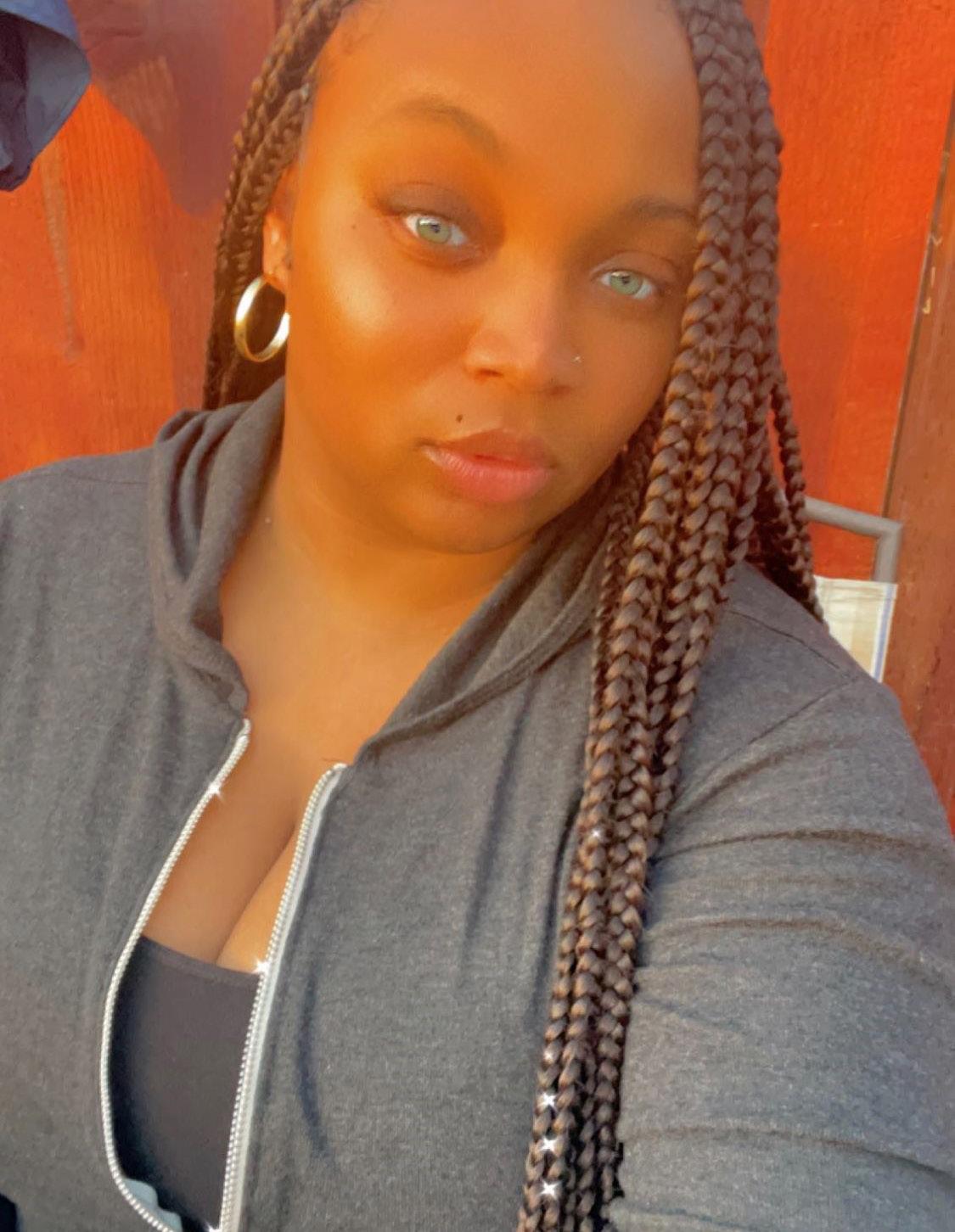
"Me encanta", dice ella. “Voy a nuestro sitio anfitrión y me aseguro de que tengan lo que necesitan y simplemente elimino las barreras que puedan tener para tener éxito. Se siente bien retribuir ".
Richmond también planea continuar persiguiendo sus metas educativas. Actualmente, está tomando una clase en la Universidad Estatal de San Francisco mientras trabaja a tiempo completo en Arriba Juntos. Eventualmente, le gustaría obtener una licenciatura.
"No estoy seguro de qué exactamente en este momento", dice Richmond. "Todavía estoy trabajando en eso".
Otro objetivo en el que Richmond está trabajando es convertirse en una compradora de vivienda por primera vez. Ella se da cuenta de que los altos costos de la vivienda en San Francisco son una barrera para cualquier persona, pero también sabe que el camino para alcanzar cualquier objetivo comienza con creer en uno mismo.
"Crees en ti mismo y lo persigues y serás bendecido", dice, "y recogerás a otros contigo".
“Pude hacer frente a la pérdida mientras estaba encarcelada.
El tiempo en la cárcel me permitió aceptarlo"
Para aquellos a quienes les resulta difícil, por cualquier razón, creer en sí mismos, Richmond tiene el siguiente consejo:
“Yo digo, solo sigue presionando. Sólo inténtalo. Sigue esforzándote, pase lo que pase, no importa lo difícil que se ponga, no importa lo difícil que sea, simplemente levántate y sigue adelante ".
Seguir ese consejo ya ha dado frutos para Richmond. "Me gusta lo que hago", dice, "y me gusta dónde estoy ahora".
Issue 03 Excell Network Magazine | Summer 2021 6 | www.excellnetwork.org

www.excellnetwork.org | 7 Excell Network Magazine | Summer 2021 Issue 03
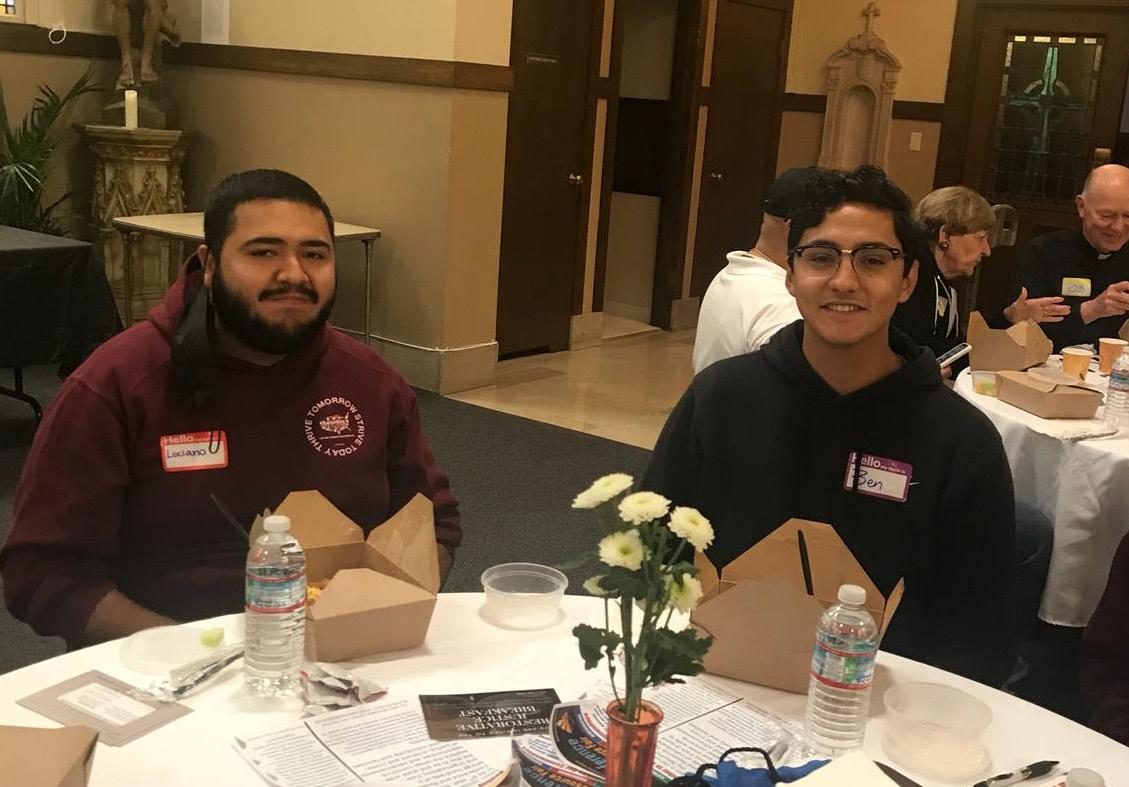
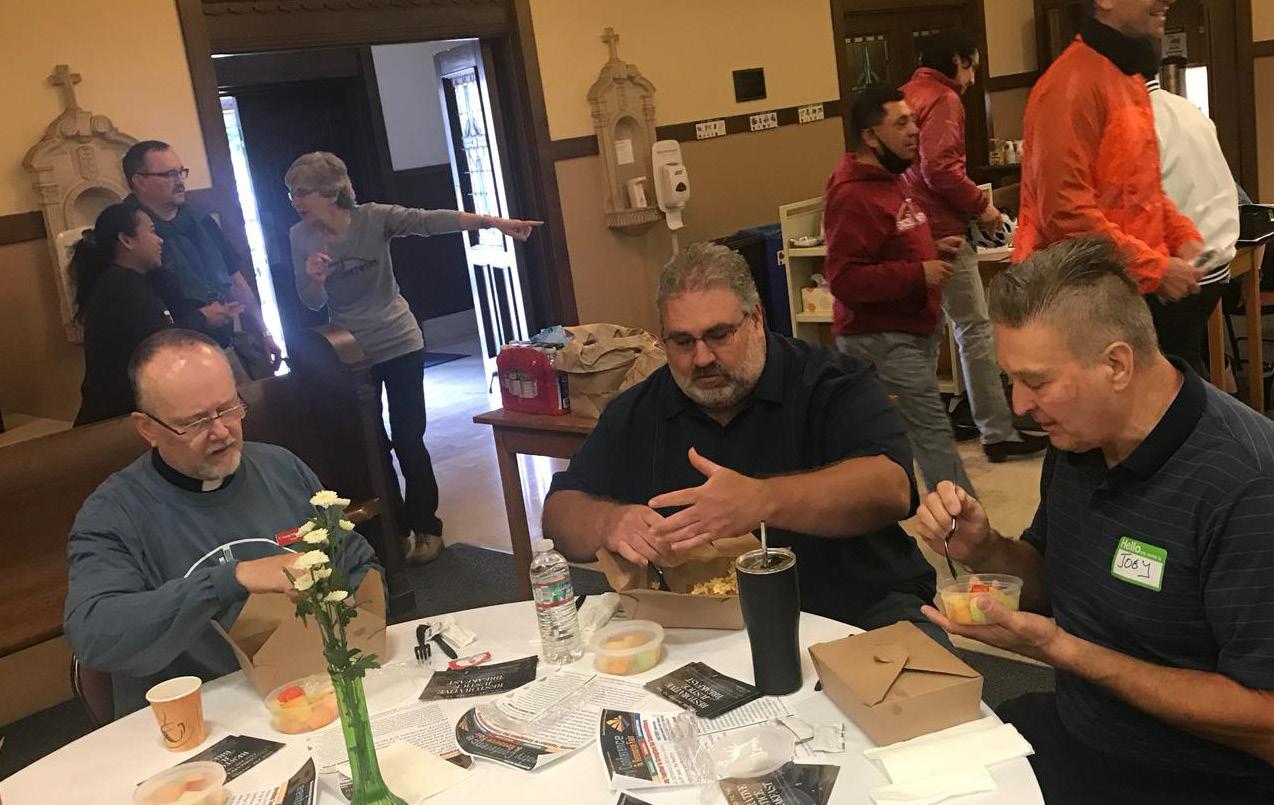
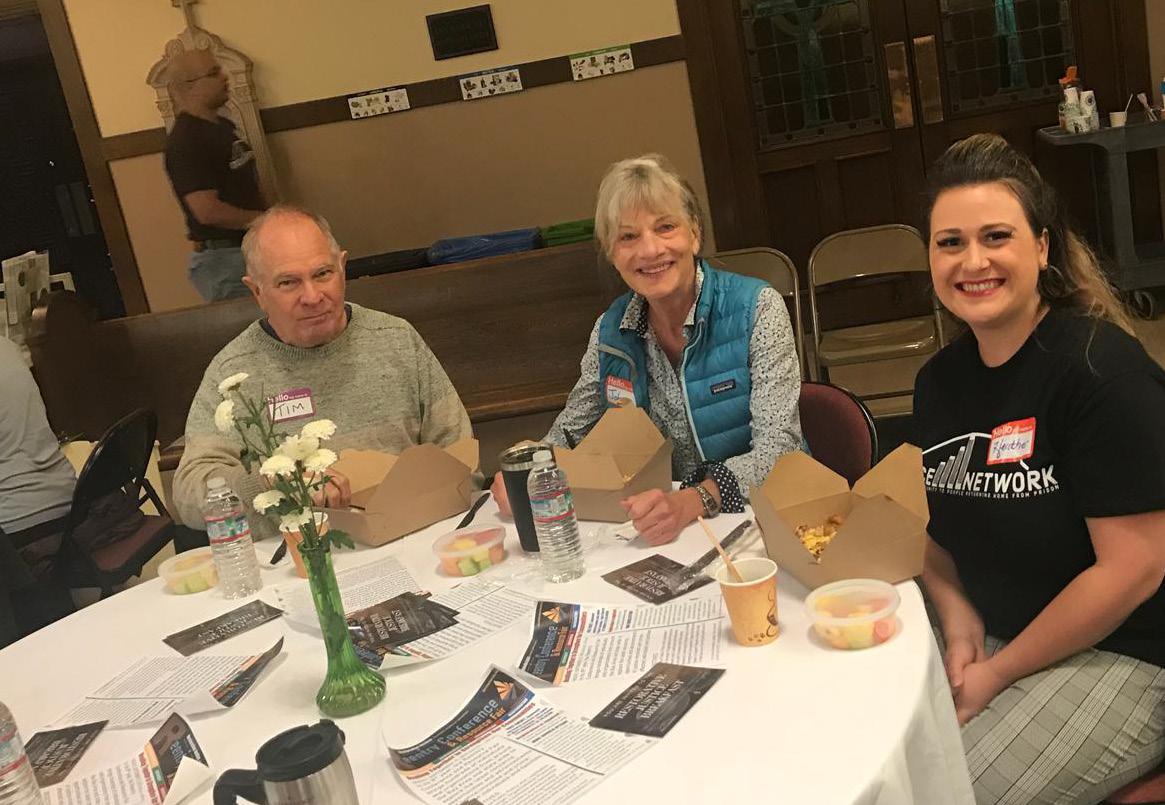
Thank you for attending our Restorative Excell Network scholarships, your
JODI ANDERSON JR:
“Even if it is looking bleak and you don’t necessarily believe in yourself, find someone who does believe in you.”

CYNTHIA LOZANO:
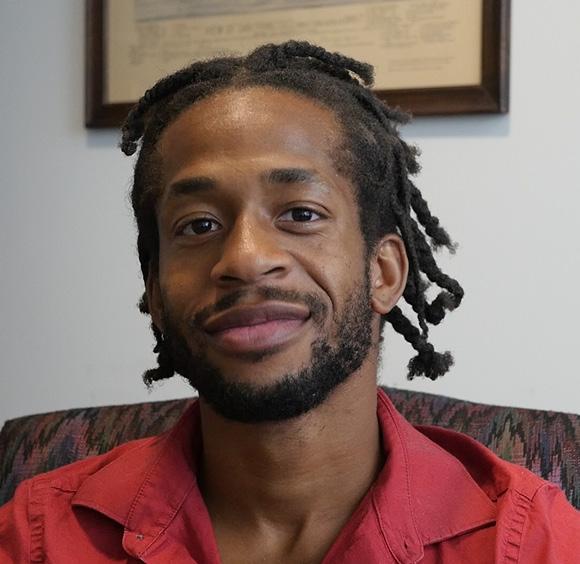
“What I really love about this program is that the majority of the support comes from people that are just like me, that have been incarcerated, people who I can relate to and that can relate to me. To me, that’s big and it means a lot that I can see someone that was once where I was, and see them be so successful and just to think, like, that could be me as well.”
JENNIFER BECERRA:
“I feel like I can make a difference in the world. I feel like God has given me a lot of wisdom, a lot of knowledge, and I really want to share that, and I want to help other people who have been in my situation.”
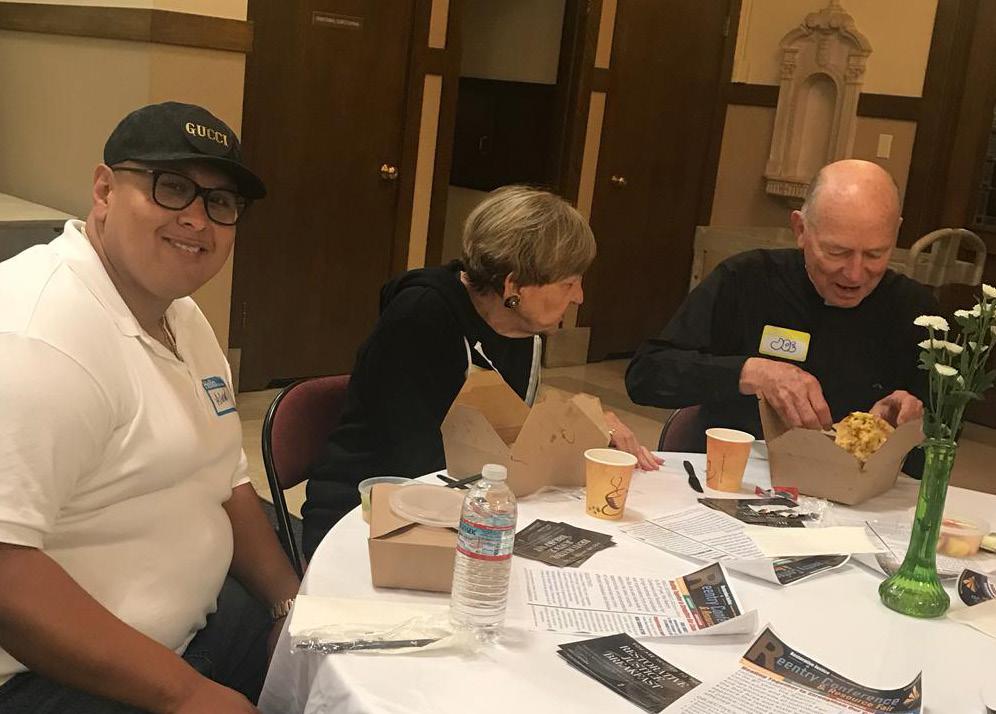
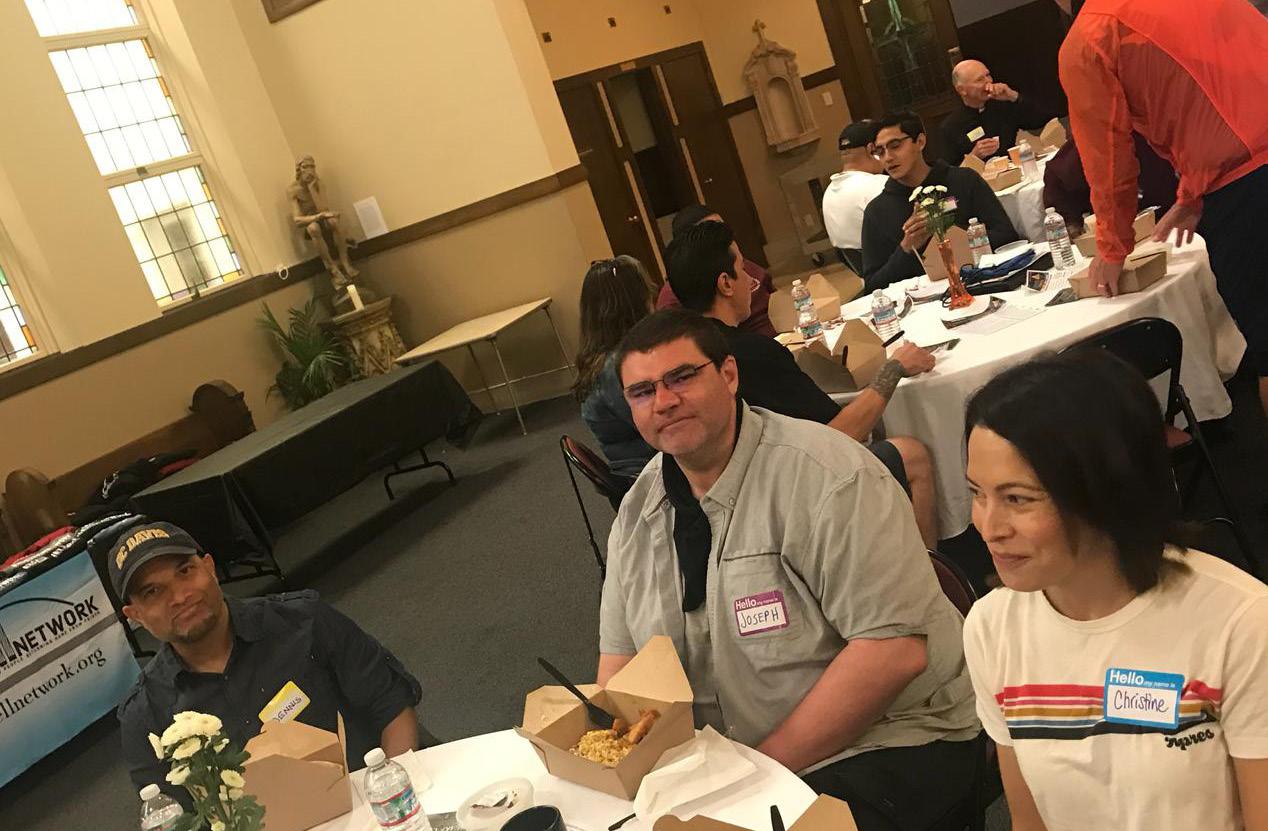
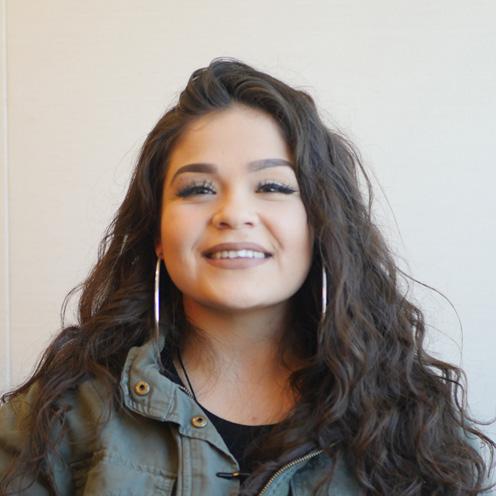
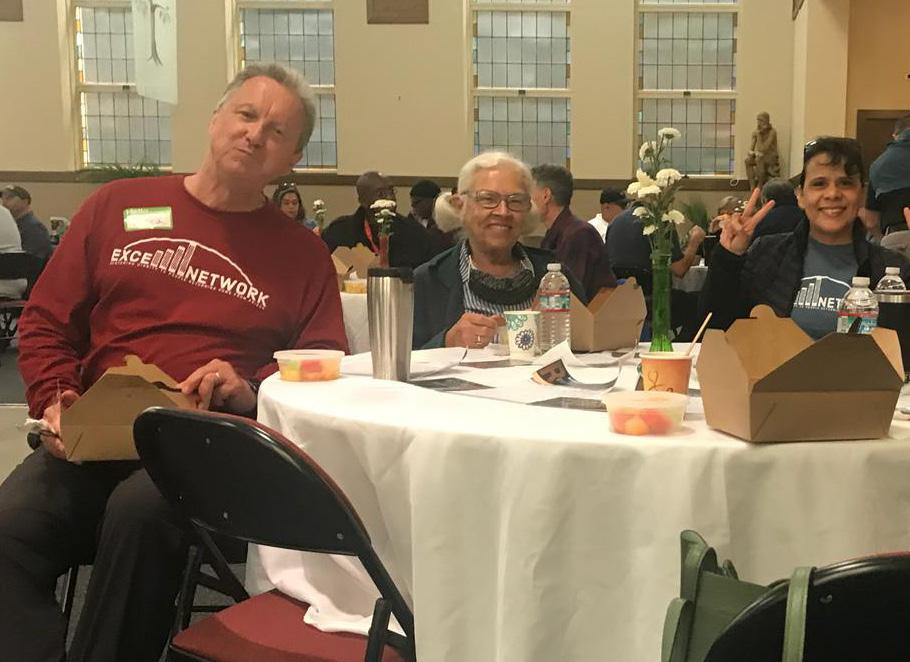

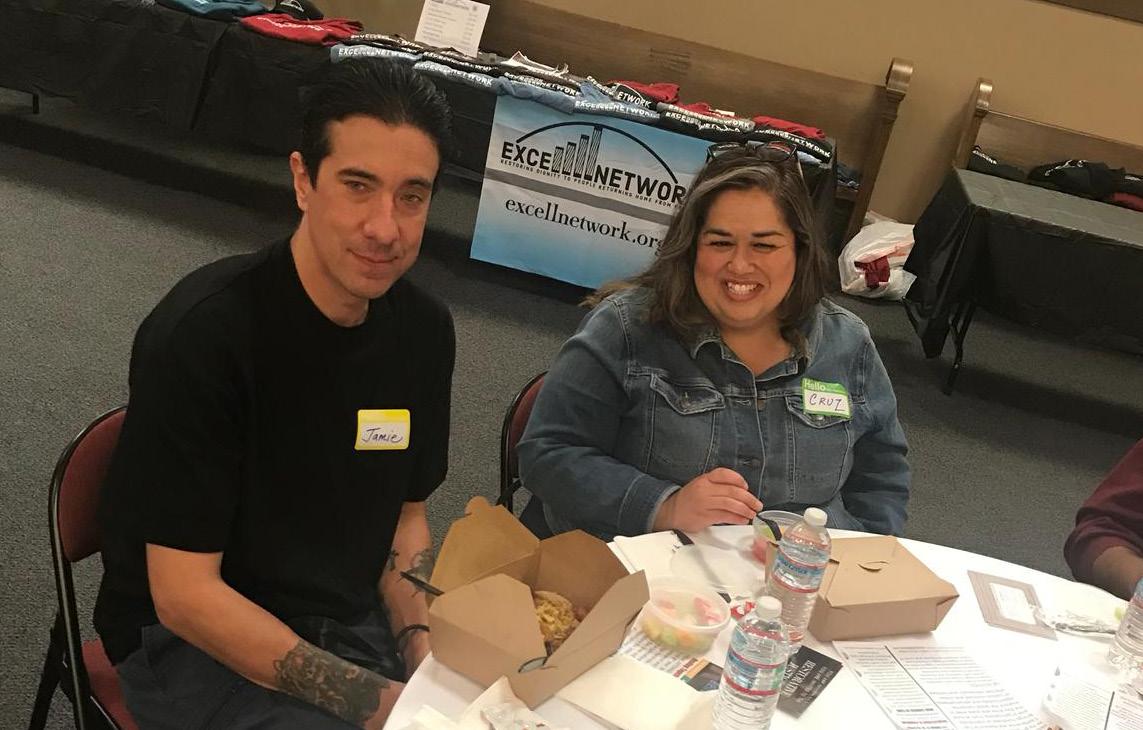
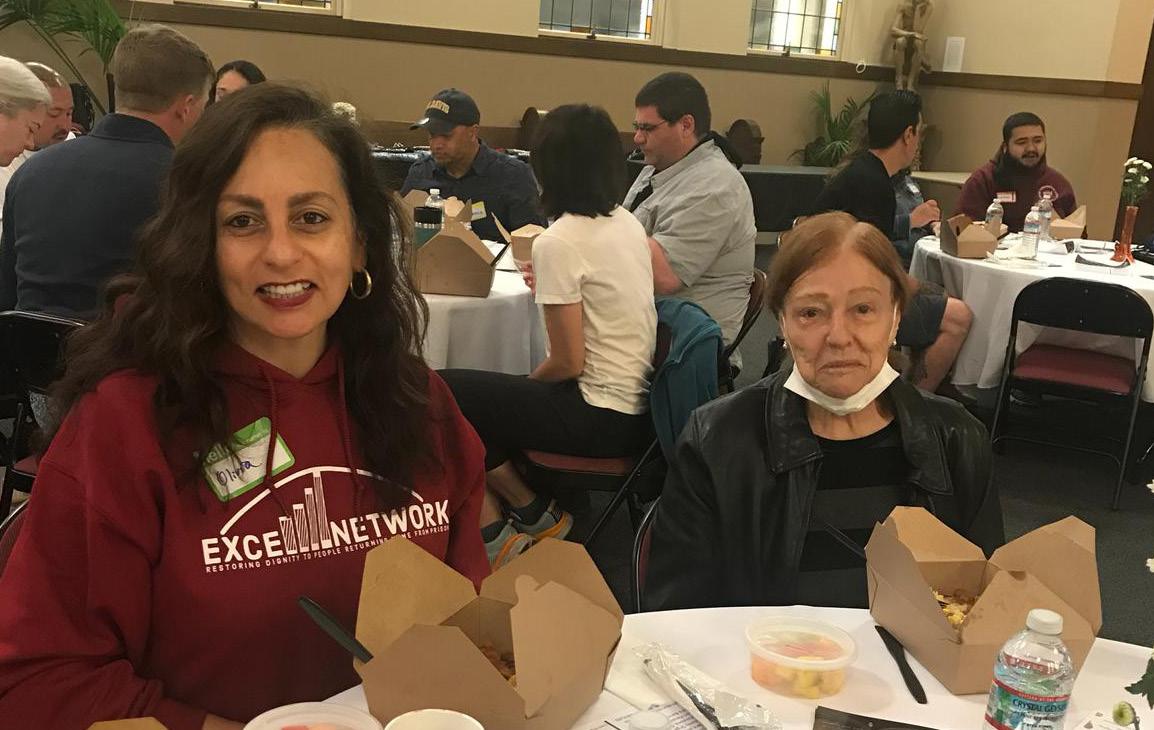
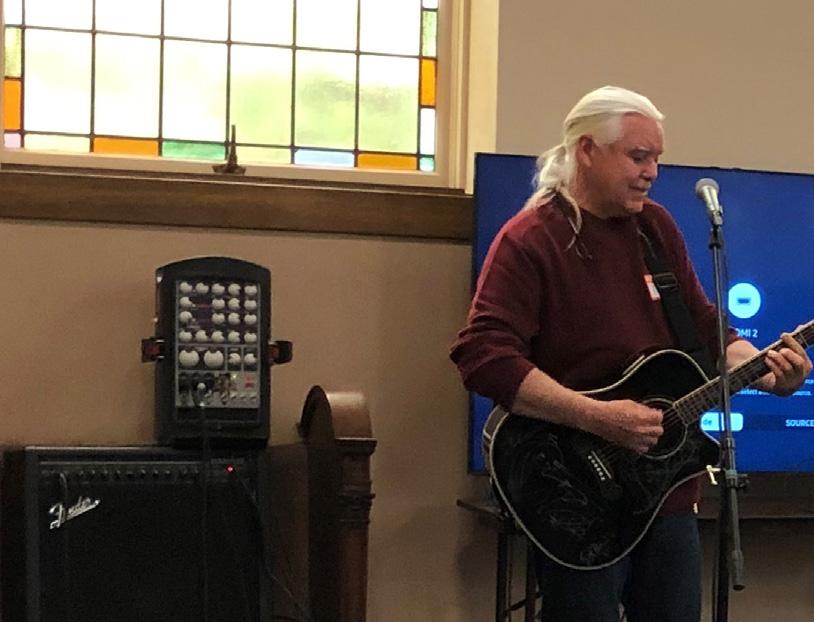
Restorative Justice breakfasts to support your kindness makes a difference.
DAISY GONZALEZ:
“And so with school I just want to keep pushing forward. I want to get this Associate’s degree and then go from there, and just be able to inspire other people, like younger people, people my age even, you know, to know that we can do it.”

MIGUEL INFANTE:
DARIO SIFUENTES:
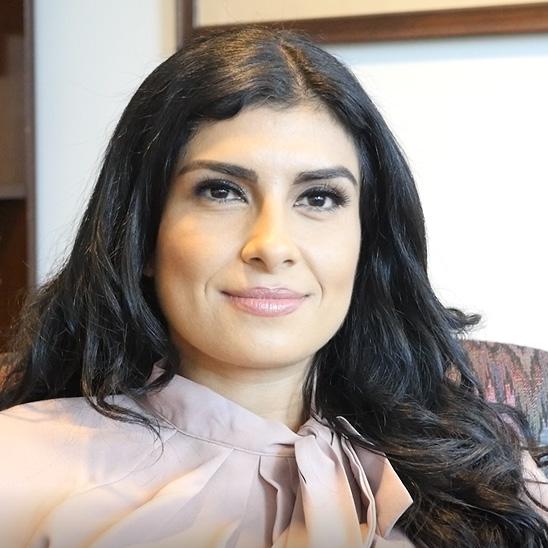
“I am now surrounding myself with people that are like-minded, possibly same past experiences, but that are now driven, goal-oriented, that have dreams.”
“I realized that I was a man who wanted to be self-sufficient, who held honor, who held integrity, who held dignity, who held courage, and who had faith, faith because God is always going to help me as long as I’m there and always ask for it, because I can’t do everything by myself.”
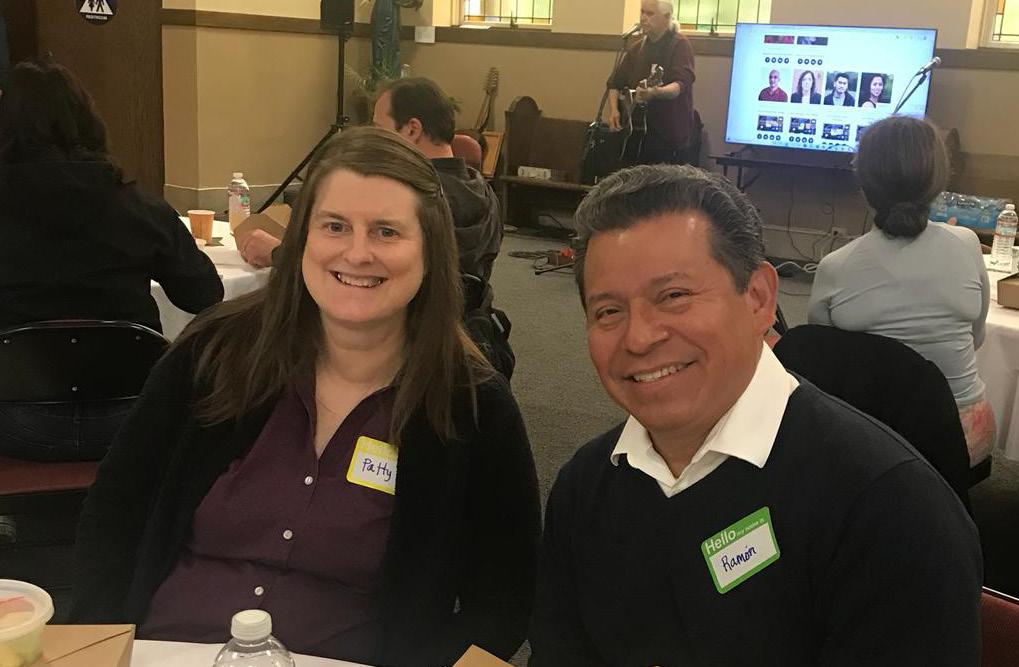
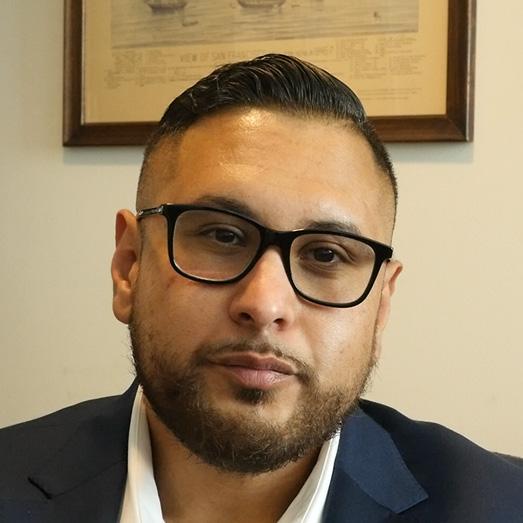

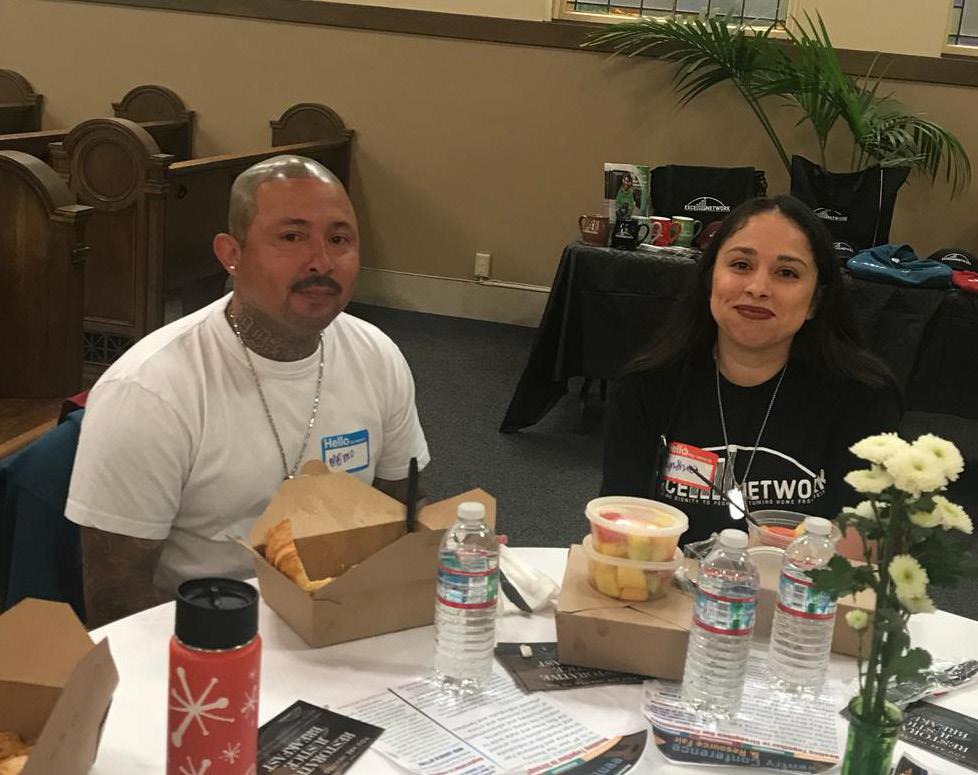
OMAR BREEDLOVE
“I don't belong in here"
Working as a peer counselor on a Street Crisis Response Team, Omar Breedlove responds to nonviolent 911 calls in San Francisco. On these calls, he meets and seeks to help those who live on the margins of society --- the homeless, the mentally ill, the addicted, those who have recently been released from jail or prison.
Breedlove has no trouble relating to those he assists.
“It takes me right back to the same places I used to hang out at,” he says. “Sometimes I meet some of the same people I used to know.”
From about the time Breedlove was a high school senior until he was arrested for robbery in 2016 --about 21 years -- his life, too, was marred by substance abuse, homelessness, and imprisonment. During all those years, he says he rarely spent more than a year out of jail or prison before going right back in again --- usually for a parole violation.
If it had not been for a revelation he had during his trial for robbery, he said, he might still be caught up in the same, self-destructive cycle that began when he was a kid growing up in San Francisco’s Oceanview neighborhood.
The only child of a working single mother, Breedlove describes himself as having been a shy kid who got good grades in school but longed most of all for acceptance. He started smoking marijuana and drinking a little when he was 12 or 13. His drug use, stealing and truancy led to two one-and-a-half year terms in a group home. By the end of high school, he was using crack and cocaine.
“So I already had delinquent tendencies,” he says. “And when you include substance abuse that creates a whole new environment.
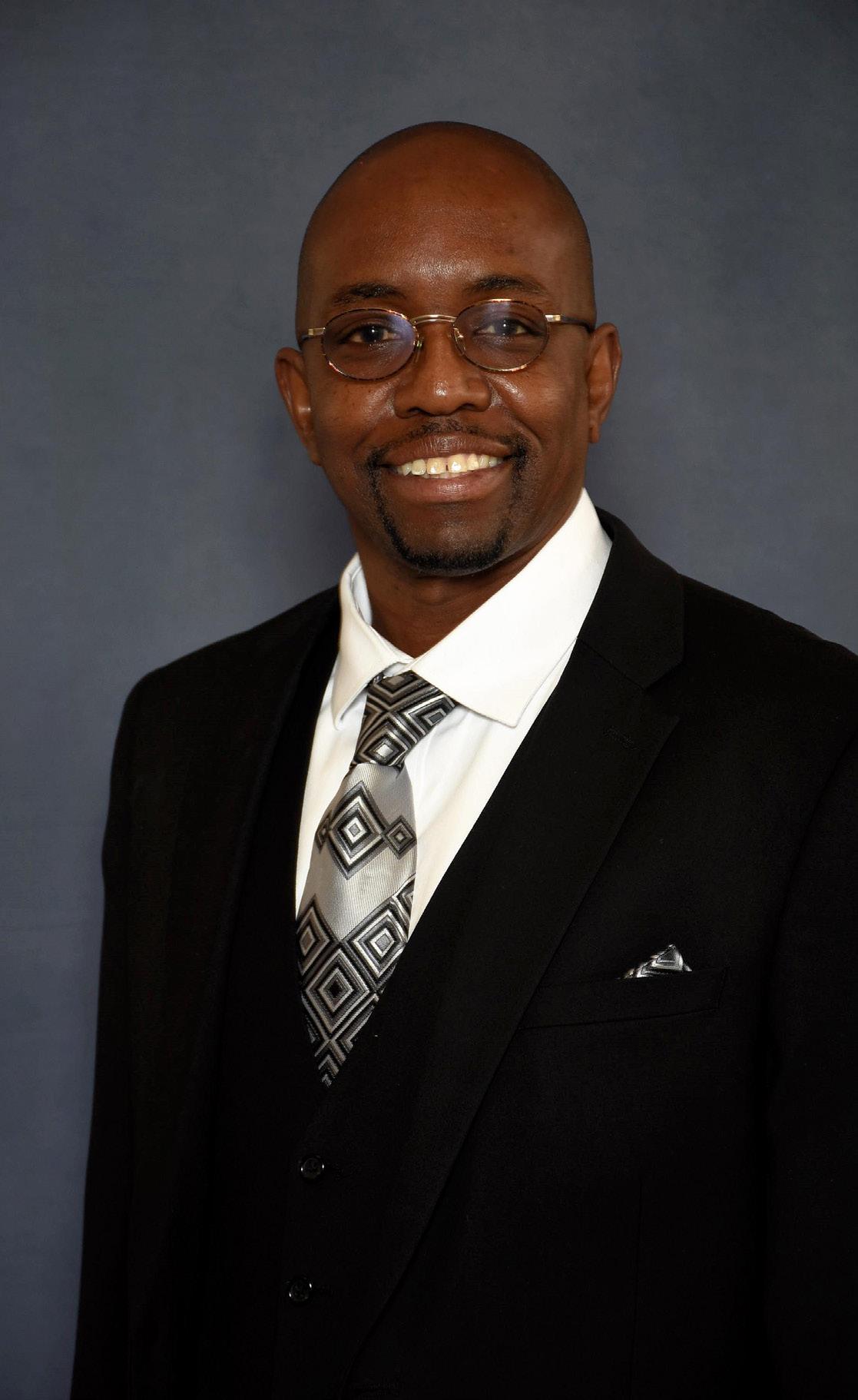 By Dana Perrigan Writer | Journalist | Book Author
By Dana Perrigan Writer | Journalist | Book Author
Trabajando como consejero en un Equipo de Respuesta a Crisis de Calle, Omar Breedlove responde a llamadas no violentas al 911 en San Francisco. En estas llamadas, se reúne y busca ayudar a quienes viven al margen de la sociedad: las personas sin hogar, los enfermos mentales, los adictos, los que recientemente han sido liberados de la cárcel o prisión.
Breedlove no tiene problemas para relacionarse con aquellos a quienes ayuda.
"Me lleva de vuelta a los mismos lugares en los que solía pasar el rato", dice. "A veces me encuentro con algunas de las mismas personas que solía conocer".
Issue 03 Excell Network Magazine | Summer 2021 10 | www.excellnetwork.org
My mom was at work. I was by myself a lot. It was really easy to go along with who I was with.”
After high school, Breedlove wanted to enlist in the Air Force, but he picked up a felony conviction which prevented him from being accepted.
“From then on,” he says, “it was just drugs, homelessness, jails and prisons, in and out.”
Occasionally, he made attempts to get clear of the drugs and the lifestyle that went along with them, but none succeeded.
Then, in 2016, he was arrested and charged with second-degree robbery. During the trial, he felt powerless, he said, and he suddenly realized that it was the wrong choices he had made through the years that had brought him to where he was at that moment.
“I looked around,” he said. “It just hit me, it just came to me, I don’t belong in here. It was a revelation. The transformation began at that point.”
Breedlove was convicted and sent to state prison in California City for three years. Once there, he enrolled in a substance abuse program. During the last eight months of his sentence, he served as a peer counselor in the same program. He also enrolled fulltime in college, and completed a program focused on character development and entrepreneurship.
Desde aproximadamente el momento en que Breedlove estaba en el último año de la escuela secundaria hasta que fue arrestado por robo en 2016 --- aproximadamente 21 años --- su vida también se vio empañada por el abuso de sustancias, la falta de vivienda y el encarcelamiento. Durante todos esos años, dice que rara vez pasó más de un año fuera de la cárcel o prisión antes de regresar de inmediato --- generalmente por una violación de la libertad condicional.
Si no hubiera sido por una revelación que tuvo durante su juicio por robo, dijo, aún podría verse atrapado en el mismo ciclo autodestructivo que comenzó cuando era un niño y crecía en el vecindario Oceanview de San Francisco.
Hijo único de una madre soltera trabajadora, Breedlove se describe a sí mismo como un niño tímido que obtuvo buenas calificaciones en la escuela pero que anhelaba sobre todo ser aceptado. Comenzó a fumar marihuana y beber un poco cuando tenía 12 o 13 años. Su uso de drogas, robos y absentismo escolar lo llevaron a dos períodos de un año y medio en un hogar grupal. Al final de la escuela secundaria, estaba consumiendo crack y cocaína.
“Entonces ya tenía tendencias delictivas”, dice. “Y cuando se incluye el abuso de sustancias, se crea un entorno completamente nuevo. Mi mamá estaba en el trabajo. Estaba mucho solo. Fue muy fácil aceptar con quién estaba".
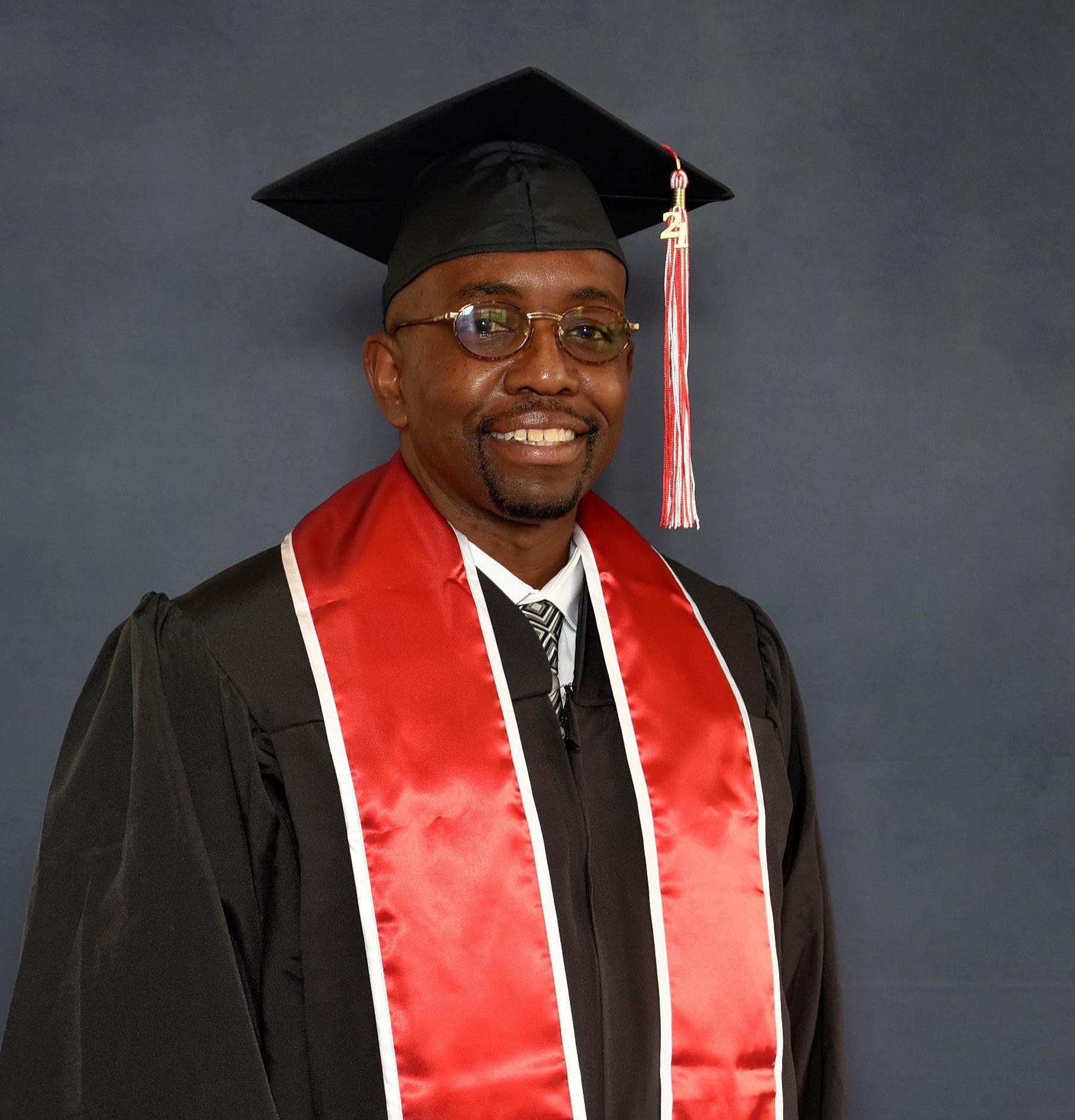
Después de la escuela secundaria, Breedlove quería alistarse en la Fuerza Aérea, pero recibió una condena por delito grave que le impidió ser aceptado.
"A partir de entonces", dice, "fueron solo drogas, indigencia, cárceles y prisiones, entrando y saliendo".
De vez en cuando, intentaba librarse de las drogas y el estilo de vida que las acompañaba, pero ninguno tenía éxito.
Luego, en 2016, fue arrestado y acusado de robo en segundo grado. Durante el juicio, se sintió impotente, dijo, y de repente se dio cuenta de que fueron las decisiones equivocadas que había tomado a lo largo de los años las que lo habían llevado a donde estaba en ese momento.
“Miré a mi alrededor”, dijo "Simplemente me golpeó, simplemente vino a mí, no pertenezco aquí. Fue una revelación. La transformación comenzó en ese punto".
www.excellnetwork.org | 11 Excell Network Magazine | Summer 2021 Issue 03
Realizing that he needed to understand and address the root causes behind his years of substance abuse, Breedlove turned to God.
“I had to ask God for forgiveness,” he says, “and to take away everything --- the urge for drugs, the mentality, the belief system -- that led to my situation . . . once I asked him to take it away, I developed the strength to confront my past, to finally face reality.”
Breedlove discovered that underneath it all was a powerful desire for acceptance. To achieve it, he had been willing to sacrifice his true self to appear acceptable to others. Drugs helped him to avoid facing the reality of the choices he had made.
"I was always looking at myself through other people’s eyes,” he said.
Breedlove fue declarado culpable y enviado a la prisión estatal en la ciudad de California durante tres años. Una vez allí, se inscribió en un programa de abuso de sustancias. Durante los últimos ocho meses de su condena, se desempeñó como consejero en el mismo programa. También se inscribió a tiempo completo en la universidad y completó un programa centrado en el desarrollo del carácter y el espíritu empresarial.
Al darse cuenta de que necesitaba comprender y abordar las causas fundamentales de sus años de abuso de sustancias, Breedlove se volvió hacia Dios.
“Tuve que pedirle perdón a Dios”, dice, “y quitarme todo, la necesidad de las drogas, la mentalidad, el sistema de creencias, que me llevó a mi situación...una vez que le pedí que me lo quitara, desarrollé la fuerza para enfrentar mi pasado, para finalmente enfrentar la realidad ”.
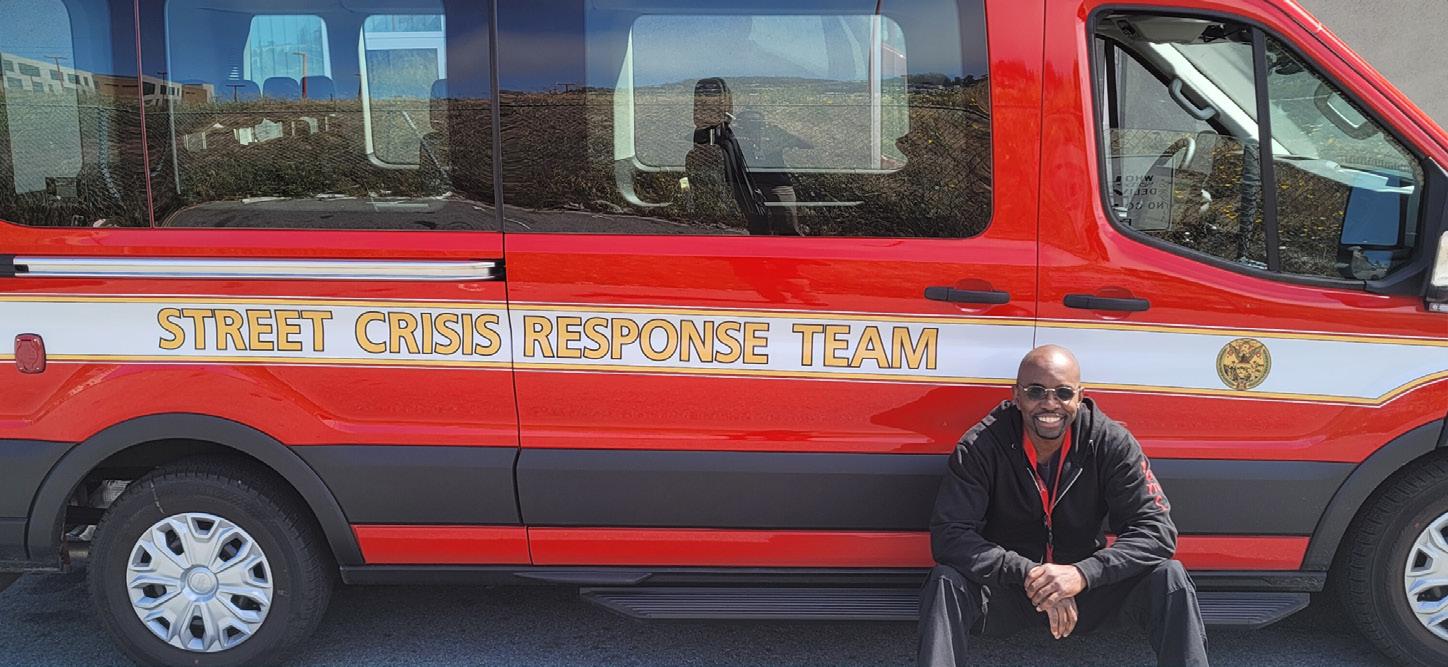
Breedlove was released after serving two years of his three-year sentence. He decided to continue pursuing his educational goals and to work. He recently graduated from City College of San Francisco with an associate degree in behavioral sciences. He has been accepted into a highly competitive social work academic program at San Francisco State University, which begins in the fall. He heard about the Excell Network program while looking at scholarships and decided to apply.
While attending college, Breedlove plans to continue working part-time as a peer counselor with RAMS (Richmond Area Multi-Services), which contracts with the San Francisco Department of Public Health to do street outreach.
His goal, after earning a degree in social work, is to help others overcome problems like the ones he has experienced. “My life has become useful,” he says. “It has purpose.”
Breedlove descubrió que debajo de todo eso había un poderoso deseo de aceptación. Para lograrlo, había estado dispuesto a sacrificar su verdadero yo para parecer aceptable a los demás. Las drogas lo ayudaron a evitar enfrentar la realidad de las decisiones que había tomado.
"Siempre me miraba a mí mismo a través de los ojos de otras personas", dijo.
Breedlove fue puesto en libertad después de cumplir dos años de su condena de tres. Decidió seguir persiguiendo sus objetivos educativos y trabajar. Recientemente se graduó de City College of San Francisco con un título de asociado en ciencias del comportamiento. Ha sido aceptado en un programa académico de trabajo social altamente competitivo en la Universidad Estatal de San Francisco, que comienza en el otoño. Se enteró del programa Excell Network mientras buscaba becas y decidió postularse.
Mientras asiste a la universidad, Breedlove planea continuar trabajando a tiempo parcial como consejero con RAMS (Richmond Area Multi-Services), que tiene contrato con el Departamento de Salud Pública de San Francisco para realizar actividades de divulgación en las calles.
Su objetivo, después de obtener un título en trabajo social, es ayudar a otros a superar problemas como los que él ha vivido. “Mi vida se ha vuelto útil”, dice. "Tiene un propósito".
Issue 03 Excell Network Magazine | Summer 2021 12 | www.excellnetwork.org
Sy Hong was just 3 years old when he and his family fled Cambodia in the aftermath of the horrific violence perpetrated by Pol Pot’s Khmer Rouge, which wiped out a quarter of the country’s population.
But it was the violence that he encountered in his new country, the United States, that would have a greater impact on his young life.
Sponsored by the Mormon Church, Hong and his family initially settled in Utah for several years. They then moved to Long Beach, home to the largest Cambodian community in the United States.
“That’s where it kind of got rough,” says Hong. “There were a lot of gangs then. There was a lot of racism.”
While Latino and African-American gangs were the most prevalent in the area, says Hong, Asian gangs were quickly forming. Both of his uncles -one of whom would eventually become the leader of the largest Cambodian gang in the country -- got caught up in the gang lifestyle.
Hong would soon follow. He remembers getting mugged, beat-up and, on one occasion, chased home from school by guys carrying golf clubs and baseball bats when he was 13.
“I was running for my life,” he says. “And they knew where I lived. Back then, if they couldn’t get at you they’d get at your family. It was incidents like these that led me to want to be part of a gang.”
Three years later, Hong was part of the gangster scene: He had guns. His friends had guns. They used drugs, sold them, partied and listened to rap music.
And then it happened: His uncle flipped off a rival gang member in a school parking lot one day. Cops broke up the brutal gang fight that followed, but that wasn’t the end of it.
A couple of days later, Hong, his uncle and a friend got their guns and cruised around looking for some payback. His uncle shot an innocent high school student by mistake. Hong fled to Las Vegas, but was caught a week later.
“I was running for my life."
SYYEN HONG
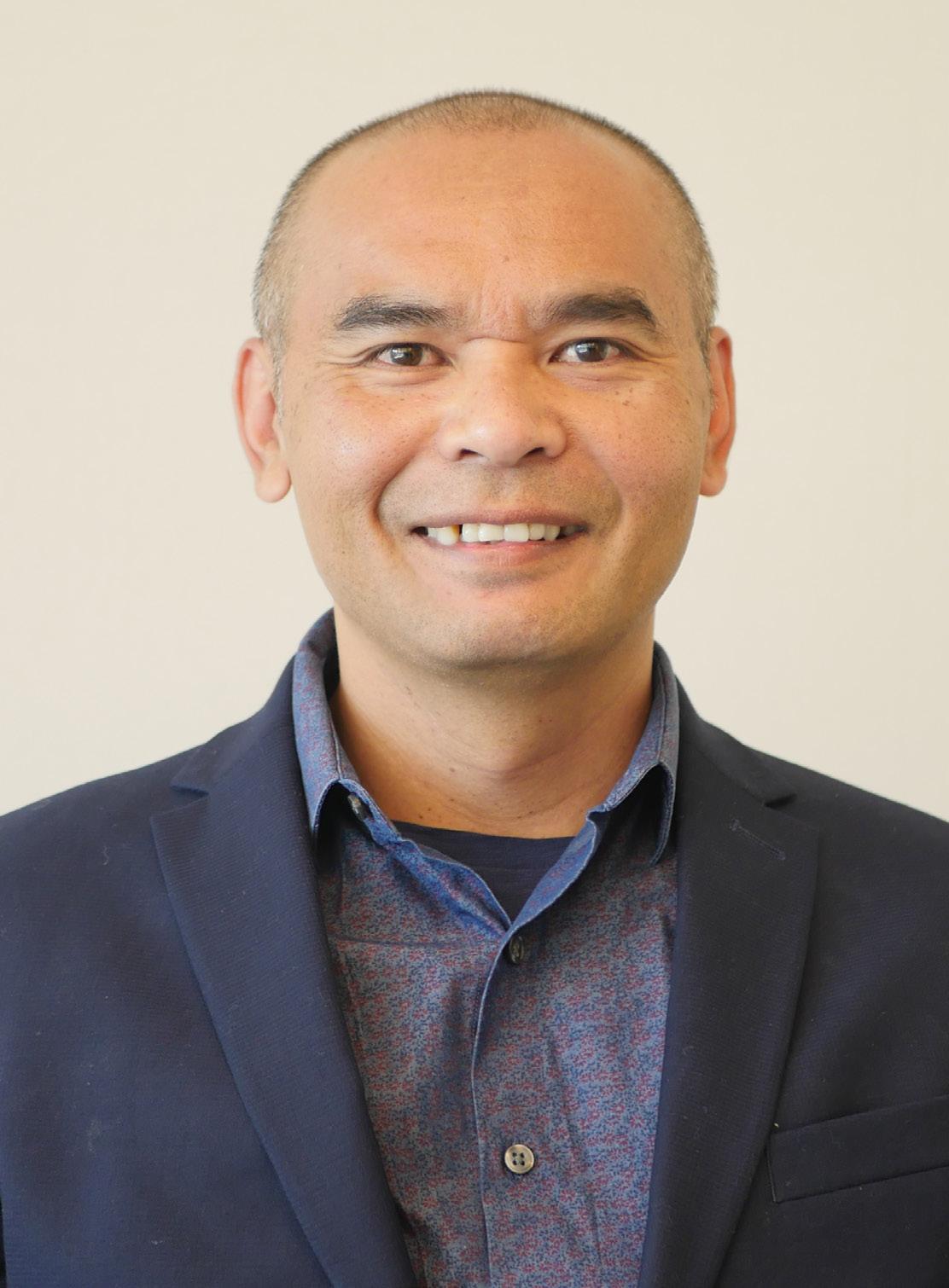 By Dana Perrigan Writer | Journalist | Book Author
By Dana Perrigan Writer | Journalist | Book Author
Sy Hong tenía solo 3 años cuando él y su familia huyeron de Camboya a raíz de la terrible violencia perpetrada por el Khmer Rouge de Pol Pot, que acabó con una cuarta parte de la población del país.
Patrocinado por la Iglesia Mormona, Hong y su familia se establecieron inicialmente en Utah durante varios años. Luego se mudaron a Long Beach, hogar de la comunidad camboyana más grande de Estados Unidos.
"Ahí es donde se puso difícil", dice Hong. “Entonces había muchas pandillas. Había mucho racismo ".
Si bien las pandillas latinas y afroamericanas eran las más frecuentes en el área, dice Hong, las pandillas asiáticas se estaban formando rápidamente.
www.excellnetwork.org | 13 Excell Network Magazine | Summer 2021 Issue 03
As the driver of the vehicle, Hong was convicted of second-degree murder (aiding and abetting), and sent to prison. He was 17, and would remain incarcerated for the next 21 years.
“I was vindictive and angry,” he says. “I became a worse gang member in prison than when I was out. I had the mentality that I was gonna die in prison.”
Hong remembers sitting on his bunk one day, drunk, reading “Behold a Pale Horse.” Written by retired F.B.I. agent Milton William Cooper, who was a Christian, the book inspired Hong to read the Bible.
“I started to read the Bible and everything came alive,” he says. “I didn’t want to die in prison. I asked God to help me and he did. I knew I couldn’t change on my own. I’d tried. But He changed me. I knew that He was real and that He wanted to help me.”
Hong would spend five more years in prison after his conversion, but they would be productive ones. He started taking college courses through the Prison University Project -- an academic program whose instructors were professors at UC Berkeley, Stanford University and San Francisco State University.
He began going to church and met Pastor Tom Pham, who later helped him make the transition to life on the outside.
He remembers fondly the reception he received at the pastor’s San Francisco church, Open Arms International Church, when he was released from San Quentin state prison in 2016.
Sus dos tíos -- uno de los cuales eventualmente se convertiría en el líder de la pandilla camboyana más grande del país -- quedaron atrapados en el estilo de vida de las pandillas.
Hong pronto lo seguiría. Recuerda haber sido asaltado, golpeado y, en una ocasión, perseguido a casa desde la escuela por tipos que llevaban palos de golf y bates de béisbol cuando tenía 13 años.
“Corría por mi vida”, dice. “Y sabían dónde vivía. En ese entonces, si no podían atacarte, atacarían a tu familia. Fueron incidentes como estos los que me llevaron a querer formar parte de una pandilla ".
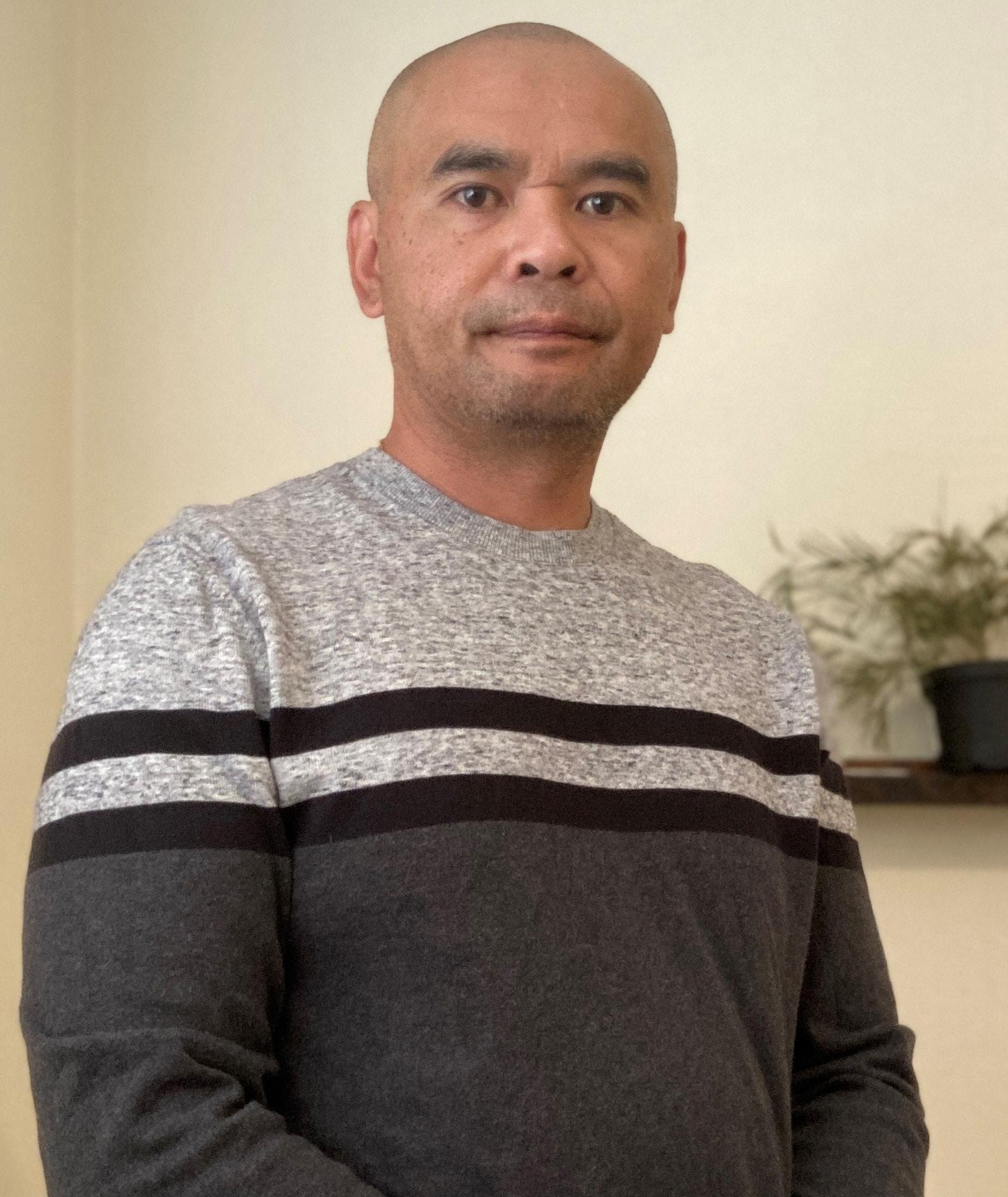
Tres años después, Hong era parte de la escena de los gánsteres: tenía armas. Sus amigos tenían armas. Usaban drogas, las vendían, festejaban y escuchaban música rap.
Y entonces sucedió: su tío se burló de un miembro de una pandilla rival en el estacionamiento de una escuela un día. La policía disolvió la brutal pelea de pandillas que siguió, pero ese no fue el final. Un par de días después, Hong, su tío y un amigo tomaron sus armas y viajaron en busca de una venganza.
Su tío le disparó a un inocente estudiante de secundaria por error. Hong huyó a Las Vegas, pero fue capturado una semana después.
Como conductor del vehículo, Hong fue declarado culpable de asesinato en segundo grado (complicidad) y enviado a prisión. Tenía 17 años y permanecería encarcelado durante los siguientes 21 años.
“They treated me with open arms,” he says. “They just showered me with love.”
Now he serves as program administrator for the church’s re-entry program, Second Chance Life.
Hong also met a woman among the parishioners who, two years later, would become his wife. The family now lives in Alameda, but has plans to
“Estaba vengativo y enojado”, dice. “Me convertí en un pandillero peor en prisión que cuando estaba fuera. Tenía la mentalidad de que iba a morir en la cárcel ”.
Hong recuerda un día sentado en su litera, borracho, leyendo "He aquí un caballo pálido". Escrito por el agente jubilado del F.B.I., Milton William Cooper, que era cristiano, el libro inspiró a Hong a leer la Biblia.
“Empecé a leer la Biblia y todo cobró vida”, dice. “No
Issue 03 Excell Network Magazine | Summer 2021 14 | www.excellnetwork.org
relocate to Texas, where they will be close to friends and relatives.
Hong plans to continue pursuing his educational goals. Currently, he is a junior at San Francisco State University, taking classes in radio and broadcasting. He has also applied for a license to operate a used car dealership. The electronic education skills he is learning in college, and the income from the business, he says, will enable him to carry out his ultimate goal -- bringing the word of God to others through his own ministry.
“I want to be able to give back to the community,” he says. “I want to make amends by the way I live my life. I feel like I have a second chance -- not to live for myself, but to help others.”
Hong has created a YouTube channel (https://youtu. be/d8ddnHtUm30) called “We Are Overcomers,” whose purpose, he says, is to inspire, motivate and enlighten.
“In a way, prison changed my life,” he says. “I want to let people know that people like me are able to change.”

quería morir en prisión. Le pedí a Dios que me ayudara y lo hizo. Sabía que no podía cambiar por mi cuenta. Lo había intentado. Pero Él me cambió. Sabía que Él era real y que quería ayudarme ”.
Hong pasaría cinco años más en prisión después de su conversión, pero serían productivos. Comenzó a tomar cursos universitarios a través del Prison University Project, un programa académico cuyos instructores eran profesores de UC Berkeley, Stanford University y San Francisco State University. Comenzó a ir a la iglesia y conoció al pastor Tom Pham, quien más tarde lo ayudó a hacer la transición a la vida en el exterior.
Recuerda con cariño la recepción que recibió en la iglesia del pastor de San Francisco, Open Arms International Church, cuando fue liberado de la prisión estatal de San Quentin en 2016.
“Me trataron con los brazos abiertos”, dice. “Simplemente me colmaron de amor”.
Ahora se desempeña como administrador del programa de reingreso de la iglesia, Second Chance Life.
Hong también conoció a una mujer entre los feligreses que, dos años después, se convertiría en su esposa. La familia ahora vive en Alameda, pero tiene planes de mudarse a Texas, donde estarán cerca de amigos y parientes.
Hong planea seguir persiguiendo sus objetivos educativos. Actualmente, es un estudiante de tercer año en la Universidad Estatal de San Francisco, tomando clases de radio y radiodifusión.
También ha solicitado una licencia para operar un concesionario de autos usados. Las habilidades de educación electrónica que está aprendiendo en la universidad y los ingresos del negocio, dice, le permitirán llevar a cabo su objetivo final -- llevar la palabra de Dios a otros a través de su propio ministerio.
“Quiero poder retribuir a la comunidad”, dice. “Quiero hacer las paces con la forma en que vivo mi vida. Siento que tengo una segunda oportunidad -- no para vivir para mí, sino para ayudar a los demás ".
Hong ha creado un canal de YouTube (https://youtu.be/d8ddnHtUm30) llamado “Somos vencedores”, cuyo propósito, dice, es inspirar, motivar e iluminar.
“En cierto modo, la prisión cambió mi vida”, dice. "Quiero que la gente sepa que las personas como yo pueden cambiar".
www.excellnetwork.org | 15 Excell Network Magazine | Summer 2021 Issue 03

One Good Deed Can Change Everything One Good Deed Can Change Everything SUPPORT EXCELL NETWORK
$400-800 SPONSORS 1 STUDENT FOR 1 SEMESTER
$800-1600 SPONSORS 1 STUDENT FOR 2 SEMESTERS
$1200-2400 SUPPORTS 1 STUDENT FOR 1 SCHOOL YEAR
Each year we are able to help to deserving students attend colleges and universities,in 2021 with the generosity of our donors we will be awarding over $25,000 in scholarship stipends.

DONATE TODAY AT EXCELLNETWORK.ORG/DONATE
Donate by check, or money order. Please make checks or money orders payable to Comunidad San Dimas Inc.
Attention: Julio Escobar / Excell Network Scholarship Stipend
1 Peter Yorke Way, San Francisco, CA 94109


AmazonSmile is a simple way for you to support Excell Network every time you shop, at no cost to you. Select COMUNIDAD SAN DIMAS INC. as your favorite charity.
We are a 501(c)(3) charitable organization, EIN 90-0750851. All contributions are tax deductible.









 By Dana Perrigan Writer | Journalist | Book Author
By Dana Perrigan Writer | Journalist | Book Author





















 By Dana Perrigan Writer | Journalist | Book Author
By Dana Perrigan Writer | Journalist | Book Author


 By Dana Perrigan Writer | Journalist | Book Author
By Dana Perrigan Writer | Journalist | Book Author





